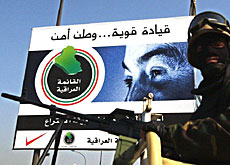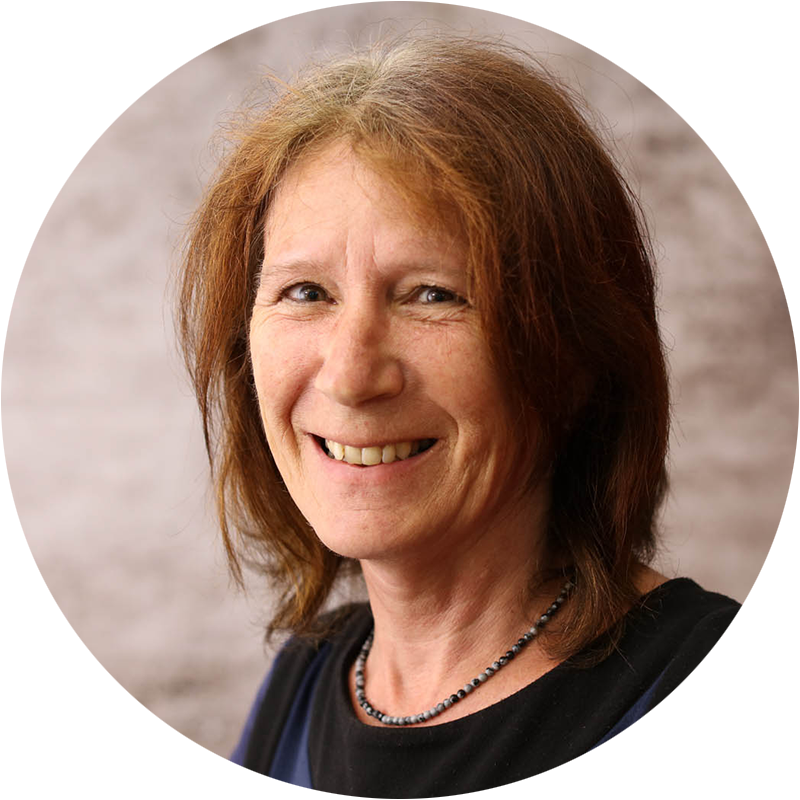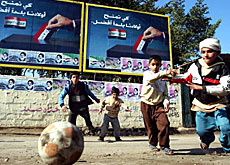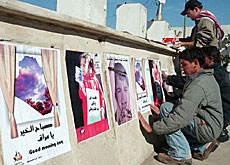Iraq embarks on election “adventure”

Despite daily violence and security fears, Iraq’s elections will go ahead as scheduled on January 30, the Swiss ambassador to Baghdad believes.
Martin Aeschbacher told swissinfo he expected voting to proceed normally in most parts of the country.
The nationwide and local elections taking place simultaneously at the end of the month are the first since former ruler Saddam Hussein was toppled in 2003.
Aeschbacher, who heads the Swiss liaison office in Iraq, said there was little to gain from postponing the vote.
swissinfo: Every day we hear reports of more violence and attacks in Iraq. Given the situation, is it realistic to hold elections on January 30?
Martin Aeschbacher: I think voting will go ahead, although many people still have their doubts… To a certain extent holding elections under these circumstances is an adventure – that’s evident.
On the other hand, the elections have been very well prepared from a technical point of view by the independent Iraqi electoral commission aided by the United Nations.
I believe that voting can take place more or less normally in 80 to 90 per cent of the country. The Kurdish north is relatively safe, although attacks are always possible.
In the Shiite south the security situation is less good, but we can still expect a good voter turnout.
In the mainly Sunni centre of the country, the situation is different. In certain provinces, for example El Anbar in which the town of Fallujah is situated, it will be very difficult.
swissinfo: Insurgents are using all means to try to prevent the elections. Won’t many people question whether it’s worth dying for the sake of putting a cross in a box?
M.A.: Certainly, people in some regions are afraid. Even in Baghdad itself there are some areas where voter turnout will be relatively low, because people are afraid of bomb attacks, but also of being recognised and “punished”.
Some people will vote come what may. Others are still undecided and will make their decision depending on the security situation. Others again are opposed to the principle of voting “under an occupying force”.
swissinfo: Would it make sense to postpone the elections?
M.A.: A postponement would perhaps be possible. But it would be create a legal problem as both the provisional constitution of March 8, 2004 and the UN Security Council stated that these elections should be held by January 2005 at the latest.
And a postponement would not achieve much unless the situation were to improve, and there is no guarantee of that.
swissinfo: Is Switzerland giving official backing to the elections?
M.A.: Switzerland welcomes the elections. But owing to the precarious security situation we are not sending any election observers.
We shouldn’t forget that this is an Iraqi process, which is not taking place under international supervision or being conducted by the UN.
swissinfo: The United States army is not offering protection to the 6,000 polling stations, and there are no international observers there. Do the Iraqis feel they’ve been abandoned?
M.A.: I don’t think so. The average Iraqi understands that international observers are afraid to come here.
What’s more, the Iraqis have a strong sense of national identity, and don’t like having their minds made up for them. I think the technical help offered by the UN is enough.
swissinfo: What will you be doing on Sunday?
M.A.: My information is that there will be a ban on cars on election day, as well as the day before and after. I will probably stay at the embassy, as I think it could be dangerous to walk around town. I will find out what’s happening from the television.
swissinfo-interview: Gaby Ochsenbein
Diplomat and Islamic specialist Martin Aeschbacher, 51, has been head of the Swiss liaison bureau in Baghdad since May 2003.
In 2004 Switzerland provided SFr8.3 million in humanitarian aid to Iraq.
The country also provides assistance in training Iraqi diplomats, and in human-rights issues.
Elections to the Iraqi national assembly, 18 provincial councils and an autonomous Kurdish parliament are taking place on January 30, 2005.
The national assembly will be charged with drafting a new constitution.
The Iraqi people will vote on the constitution in October, at the same time as they elect a presidium to appoint a prime minister.

In compliance with the JTI standards
More: SWI swissinfo.ch certified by the Journalism Trust Initiative



You can find an overview of ongoing debates with our journalists here . Please join us!
If you want to start a conversation about a topic raised in this article or want to report factual errors, email us at english@swissinfo.ch.